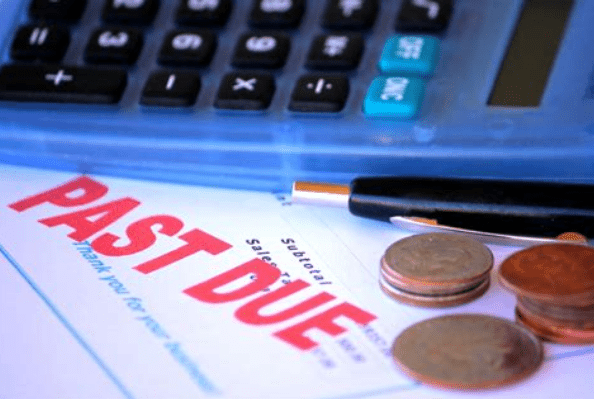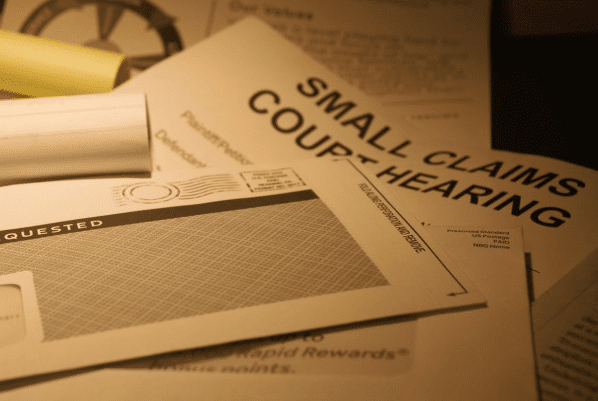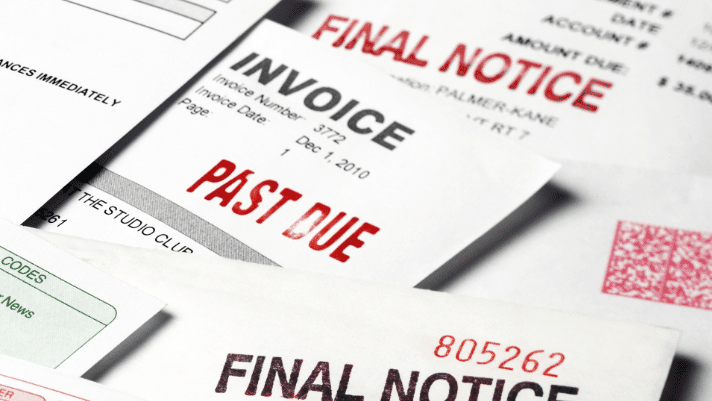In South Carolina, you have a 30-day window to respond to a debt collection lawsuit, and the good news is, there’s no fee to file your Answer. Before you proceed, it’s crucial to verify the statute of limitations on your debt, which stands at three years in the state. ZumaZip offers an Answer form that streamlines the response process, and they’ll handle the filing for you, making the entire process smoother and more manageable.
Receiving a notice of being sued for debt collection is undoubtedly overwhelming, especially with all the other challenges you may be facing. It’s natural to feel daunted, especially when legal assistance seems out of reach financially. Ignoring the lawsuit might seem like the easiest option, but unfortunately, it won’t make the problem disappear. In fact, failing to respond essentially hands victory to the other party.
The bright side is that responding to a debt collection lawsuit on your own doesn’t have to be as daunting as it seems. Whether you’re using ZumaZip or gathering information independently, we’re here to guide you through the process step by step. In this article, we’ll outline everything you need to know to respond to a debt collection lawsuit in South Carolina, including crucial deadlines, state-specific forms, and filing fees.
You have 30 days to file your Answer in South Carolina
Each state has unique rules regarding the deadline to respond to a debt collection lawsuit. According to South Carolina Rules of Civil Procedure, Rule 12(a) states:
“A defendant shall serve his answer within 30 days after the service of the complaint upon him.”
In other words, the deadline to respond to a debt collection lawsuit is 30 days in South Carolina. The clock starts on the day you were served the Summons and Complaint documents.
If you fail to respond within that time frame, the party suing you (the plaintiff) can request that the Court issue an order in their favor, which is called a default judgment. This judgment will be for the amount they requested in the Summons and Complaint, plus courts costs and attorney fees. If a default judgment is granted, you will have missed the opportunity to contest the amount or any other allegations by failing to respond.
Fortunately, residents of the Palmetto State do not need to be concerned with having their wages garnished by a private debt collector. SC Code § 15-39-420 states that private debt collectors are prohibited from pursuing a wage garnishment order for consumer debt, such as unpaid credit card balances, medical debt, and so forth. However, there are some notable exceptions to this prohibition.
For example, wage garnishment is allowed if you owe money to the government (state or federal). In addition, wage garnishment is allowed if you owe money for unpaid child support or spousal support. Also, wage garnishment is allowed if a valid garnishment order was entered in another state where you previously resided there later relocated to the Palmetto State.
Even though private debt collectors cannot garnish your wages, they still retain the right to file a debt collection lawsuit against you and can obtain a valid, enforceable court judgment to collect on the debt. In many instances, rather than pursue wage garnishment, private debt collectors utilize other collection tactics, such as garnishment of non-wage income, writs of execution and liens.
Use these South Carolina Answer to Summons forms
You can use ZumaZip’s Answer form to respond to the lawsuit; it works in magistrate court and other South Carolina courts. It’s drafted by professional litigation attorneys and has protected over $100 million for consumers like you.
If you want to do it on your own, and your case is in Magistrate court, you can use court form SCCA/703 from the South Carolina Magistrate courts. The South Carolina Magistrates have civil jurisdiction over legal matters when the amount in controversy does not exceed $7,500. If the amount at issue is more than $7,500, you will have to draft your own response (likely for the Circuit Court) as there is no available online form through the South Carolina court system. We will walk you through that process below, step-by-step.
Alternatively, if you decide to use ZumaZip, we will take care of all of the detail work for you by creating and filing your Answer. We’ll just need you to answer a few questions online to get us started. We can then lay out your answers in the proper legal format. Before we file the paperwork on your behalf we’ll have an attorney review the completed Answer to verify that everything is in the correct format.
South Carolina courts do not charge an Answer filing fee
Luckily for you, there is no fee to file an Answer in South Carolina. That being said, there are fees for filing other court documents in South Carolina. The fee schedules below outline the South Carolina court filing fees:
ZumaZip calculates the filing fees for you.
Use these steps to respond to a debt collection case in South Carolina
A South Carolina debt lawsuit is initiated when the plaintiff (the person or company suing) files a Summons and Complaint in court and serves you with copies of the documents. The Summons is the official notification of the lawsuit, while the Complaint lists the specific claims against you.
As we discussed above, the deadline to file a response in a South Carolina debt collection lawsuit is 30 days. It’s very important to file your Answer before that deadline expires to preserve your rights in the legal matter and avoid a default judgment.
As such, you need to know the start date to properly calculate your deadline, which is the date that the Summons and Complaint were served. Usually, the plaintiff must file a certificate of service, notifying the court that the documents were properly served and the defendant (in this case, you) have been notified of the case.
Even though it can certainly feel intimidating to respond to a legal matter on your own, we’re here to tell you that it’s less complicated than you think.
Follow these three steps to respond to a South Carolina debt collection lawsuit:
- Answer each issue of the Complaint.
- Assert your affirmative defenses.
- File the Answer document with the court, and serve the plaintiff with a copy.
Now, let’s take a closer look at each of these steps.
1. Answer each issue of the Complaint
The next step is to answer each issue in the Complaint. In general you should make it a point to directly respond to each and every allegation against you separately, which we’ll explain further below.
If you’re drafting your own response for Circuit Court, you should answer each numbered paragraph with one of the following three responses:
- Admit: in other words, “This is true.”
- Deny: in other words, “Prove it.”
- Deny due to lack of knowledge: in other words, “I don’t know.”
Make certain that you are using the same number for your response as the number of the paragraph you are answering, so it is clear which response goes to which allegation.
Most attorneys recommend that you deny as many claims as possible, but it won’t hurt your case to admit to facts that are true, such as your name or address.
You should deny any allegations that are not true, although you could admit in part and deny in part if the numbered paragraph contains more than one allegation. Finally, feel free to use the final option of “deny due to lack of knowledge” if it is something that you can’t independently verify, such as specific information about the debt collection company who is suing you.
Let’s consider an example.
Example: Frank is being sued by Midland Credit Management for a debt he doesn’t recognize. He uses ZumaZip to respond to the case, and he denies all of the claims regarding the supposed debt that are listed in the Complaint document. Doing so forces Midland Credit Management to prove their side of the case. After some digging through documents, the debt collection agency realizes it doesn’t have enough evidence to prove its claims and dismisses the case voluntarily. Turns out, they were trying to sue Frank for a debt he didn’t actually owe.
If you’re using the Magistrate Answer form, however, you’ll need to consolidate your responses together into one of only four responses:
- Contest the jurisdiction of the court
- Admit everything in the complaint and do not want a trial
- Admit responsibility, but not for the total amount claimed because: ____
- I deny I am responsible at all because: _____
The form provides a few lines for your explanations, if needed, but you can attach additional pages if necessary. We will discuss more of what you might want to expand on in section 3 below.
Also keep in mind that you will need to sign the online form to verify that the “information contained in this answer is true and correct to the best of my knowledge” so it’s important to be fully truthful with your responses.
ZumaZip makes it simple to respond the right way.
2. Assert affirmative defenses
This next step is where you get to fight back by asserting your affirmative defenses. Affirmative defenses are any reason you can raise to show that the plaintiff does not have a case against you. This can include factual disputes, such as if your account number or name does not match the one in the pleading, or legal arguments, such as those included in the South Carolina Judicial Branch General Rules of Pleadings rule 8(c), which states:
“(c) Affirmative Defenses; Reply. In pleading to a preceding pleading, a party shall set forth affirmatively the defenses: accord and satisfaction, arbitration and award, assumption of risk, condonation, contributory negligence, discharge in bankruptcy, duress, fraud, illegality, injury by fellow servant, laches, license, misrepresentation, mistake, payment, plene administravit or the administration of the estate is closed, recrimination, release, res judicata, statute of frauds, statute of limitations, waiver, and any other matter constituting an avoidance or affirmative defense. When a party has mistakenly designated a defense as a counterclaim or a counterclaim as a defense, the court shall treat the pleading as if there had been a proper designation. A party may file a reply to any of the foregoing affirmative defenses.”
You can assert any and every one of these affirmative defenses that applies to your case. We will discuss some of the more common affirmative defenses briefly below, but please note that this does not include all the possible choices.
- Payment: This is the ultimate defense to any collection action, because if you can prove you paid the debt in question, that will end the lawsuit. It’s more common than you might guess because usually you aren’t being sued by your original creditor, rather the plaintiff represents a third-party debt collection debt company who purchased your debt for pennies on the dollar. These transactions tend to be in large bundles, so all of the details for each individual debt/account are not always fully explored by the new owner.
- Accord and satisfaction: This refers to any agreement that you may have entered into with the creditor to pay a lesser amount to satisfy the debt in full satisfaction. Here again this could be a detail that fell through the cracks from the original creditor when the debt was purchased by a debt collection agency. Attach any proof you have of such an agreement to your Answer document.
- The debt was already discharged in a bankruptcy. Once a debt is discharged in bankruptcy then it can no longer be pursued for collection through the legal system. So if you previously filed a personal bankruptcy that included this debt and received a discharge then the plaintiff has no legal case.
- Statute of limitations has expired. A statute of limitations is a law that sets a deadline for legal action. We will discuss the South Carolina statute of limitations on debt collection in more detail later in this article.
Let’s take a look at another example.
Example: Jenny is being sued for a credit card debt in South Carolina. The debt collection agency that is suing her purchased the debt of $450 from her original creditor for a sliver of the original amount. After some investigating, Jenny realizes that she hasn’t been active on that account for more than four years. Since the statute of limitations on credit card debt is three years in South Carolina, Jenny decides to fight back. She uses ZumaZip to draft and file her Answer where she uses the expired statute of limitations as one of her affirmative defenses. After a few weeks, the court rules in Jenny’s favor, and the case gets dismissed.
Make the right affirmative defense the right way with ZumaZip.
If you are using the Magistrate Answer form this is where you will likely need additional pages if you have checked the box next to response “C” or “D” so that you can list and argue all of your affirmative defenses. If you are drafting your own response, you can create a new section following your responses to Complaint to go through each relevant affirmative defense separately.
Beyond affirmative defenses you can also assert counterclaims against the plaintiff. This could be appropriate in the event that you can show that the plaintiff violated South Carolina debt collection laws. South Carolina follows the federal Fair Debt Collection Practices Act and supplements that protection with the South Carolina Consumer Protection Code to further protect consumers from unfair debt collection in South Carolina. Please keep in mind, however, that counterclaims can be very complex and would be difficult to pursue without knowledgeable legal counsel.
3. File the Answer with the court and serve the plaintiff with a copy
The final step is to file your response with the proper court and serve your documents on the plaintiff to prove that you have responded within the allowed 30 day timeframe.
You should print out at least two copies of your Answer and your Appearance. Whenever possible, it is a good idea to make a third set for your own records. Make sure that you mail the first copy to the Court (use the address from the Summons and Complaint) or file in person at that Court. The other copy needs to be mailed to the plaintiff’s attorney.
ZumaZip can file your Answer for you in all 50 states.
Why ZumaZip?
ZumaZip makes it easy to fight debt collectors.
You can use ZumaZip to respond to a debt lawsuit, to send letters to collectors, and even to settle a debt.
ZumaZip’s Answer service is a step-by-step web-app that asks you all the necessary questions to complete your Answer. Upon completion, we’ll have an attorney review your document and we’ll file it for you.
Statute of Limitations on debt in South Carolina
The statute of limitations for South Carolina debt collection is three years. This means that any debt collection action for credit cards, medical debt, or ongoing contracts have to be begun before this three year period expires. Otherwise any collection efforts are time-barred because the statute of limitations expired.
Exception: the statute of limitations on judgment debts is 10. So if you lose your debt lawsuit and the collector gets a judgment against you, that judgment is valid for 10 years.
In other words, debt collectors have three years from the last activity on your debt account to take you to court. If they do not file the debt lawsuit within the three-year statute of limitations, the case is invalid, and you can use this as a defense in your Answer.
The table below further outlines the South Carolina statutes of limitations on debt and its different types:
| Debt Type | Deadline |
|---|---|
| Credit card | 3 years |
| Medical | 3 years |
| Student loan | 3 years |
| Auto loan | 3 years |
| Personal loan | 3 years |
| Oral contract | 3 years |
| Judgment | 10 years |
| Mortgage | 20 years |
| Source: SC Code § 15-3-520, § 15-3-530, and Hardee v. Lynch |
South Carolina legal aid organizations can assist you
Every state has at least one government-funded organization that provides free legal services to people who cannot otherwise afford it. In South Carolina you can check out either of the below organizations:
South Carolina court locations
Go here for a list of South Carolina Court Locations: South Carolina Court Locations
Key Takeaways
In short, here’s a quick review on how to respond to a Summons for debt collection in South Carolina.
- You have 30 days to file an Answer to your debt lawsuit in South Carolina.
- South Carolina courts do not charge a filing fee.
- Use the ZumaZip Answer form to draft and file your response in minutes.
- In your Answer document, respond to each claim against you and assert your affirmative defenses.
- File the Answer with the court, and send a copy to the opposing party.
- The South Carolina statute of limitations on debt is three years.
What is ZumaZip?
ZumaZip is a convenient solution designed to streamline your response to a debt collection lawsuit. Here’s a breakdown of what you can expect when you use ZumaZip:
Firstly, you’ll access our user-friendly web application, which guides you through the process step by step. You’ll be prompted to answer a series of questions related to your specific situation. Once you’ve completed the questionnaire, you have the option to either print out the finalized forms and mail them to the appropriate courts yourself, or you can opt to utilize ZumaZip’s services to file them on your behalf. Additionally, if you choose this option, an attorney will review your document for added peace of mind.
If you’re seeking guidance on how to effectively respond to a debt collection lawsuit, ZumaZip can provide the assistance you need. Feel free to explore our FAQs for more information on what ZumaZip has to offer.
What if I haven’t been sued yet?
If you’ve only received a collections notice, but not a lawsuit, the best way to respond is with a Debt Validation Letter. When a debt collector contacts you in any way, whether it’s by phone or mail, you can respond by formally requesting a debt validation with a Debt Validation Letter . This letter notifies the collector that you dispute the debt and forces them to provide proof you owe the debt. They can’t call you or continue collecting until they provide validation of the debt. This flowchart shows how you can use a Debt Validation Letter to win.
Get started with a Debt Validation Letter here.
How to Answer a Summons for debt collection in all 50 states
Here’s a list of guides on how to respond to a debt collection lawsuit in each state:
- Alabama
- Alaska
- Arizona
- Arkansas
- California
- Colorado
- Connecticut
- Delaware
- Florida
- Georgia
- Hawaii
- Idaho
- Illinois
- Indiana
- Iowa
- Kansas
- Kentucky
- Louisiana
- Maine
- Maryland
- Massachusetts
- Michigan
- Minnesota
- Mississippi
- Missouri
- Montana
- Nebraska
- Nevada
- New Hampshire
- New Jersey
- New Mexico
- New York
- North Carolina
- North Dakota
- Ohio
- Oklahoma
- Oregon
- Pennsylvania
- Rhode Island
- South Carolina
- South Dakota
- Tennessee
- Texas
- Utah
- Vermont; Vermont (Small Claims court)
- Virginia
- Washington
- West Virginia
- Wisconsin
- Wyoming
Guides on how to beat every debt collector
Hey there! Facing off against a debt collector can feel like a daunting challenge, but fear not! We’re here to help you navigate through it all with our handy guides designed to assist you in beating every debt collector you encounter. Whether you’re facing a new lawsuit or dealing with a persistent collector, we’ve got your back. Stay positive, stay informed, and let’s tackle this together!
- Absolute Resolutions Investments LLC
- Accredited Collection Services
- Alliance One
- Amcol Clmbia
- American Recovery Service
- Asset Acceptance LLC
- Asset Recovery Solutions
- Associated Credit Services
- Autovest LLC
- Cach LLC
- Cavalry SPV I LLC
- Cerastes LLC
- Colinfobur
- Covington Credit
- Crown Asset Management
- CTC Debt Collector
- Cypress Financial Recoveries
- Delanor Kemper & Associates
- Eagle Loan of Ohio
- Educap
- Estate Information Services
- FIA Card Services
- Forster & Garbus
- Freshview Solutions
- Fulton Friedman & Gullace LLP
- Harvest Credit Management
- Howard Lee Schiff
- Hudson & Keyse LLC
- Integras Capital Recovery LLC
- Javitch Block
- Jefferson Capital Systems LLC
- LVNV Funding
- Mannbracken
- Mariner Finance
- Medicredit
- Michael J Adams PC
- Michael J Scott
- Midland Funding LLC
- Mullooly, Jeffrey, Rooney & Flynn
- Mountain Land Collections
- MRS Associates
- National Collegiate Trust
- Nationstar Foreclosure
- Northstar Capital Acquisition
- NCEP LLC
- NRC Collection Agency
- OneMain Financial
- Palisades Collection LLC
- Pallida LLC
- Paragon Revenue Group
- Pinnacle Collections Agency
- PMAB LLC
- Portfolio Recovery Associates
- Provest Law
- PYOD LLC
- Reunion Student Loan Finance Corporation
- Revenue Group
- Regents and Associates
- RSIEH
- Salander Enterprises LLC
- Second Round Sub LLC
- Security Credit Services
- Sherman Financial Group
- Suttell and Hammer
- T-Mobile
- Transworld Systems
- Tulsa Teachers Credit Union
- UCB Collection
- Velo Law Office
- Velocity Investments
- Waypoint Resource Group
- Weinberg and Associates
- Wolpoff & Abramson
Settle your medical debt
Having a health challenge is stressful, but dealing medical debt on top of it is overwhelming. Here are some resources on how to manage medical debt.
- Am I Responsible for My Spouse’s Medical Debt?
- Do I Need a Lawyer for Medical Bills?
- Do I Need a Lawyer to Fight Medical Bill Debt?
- Does Bankruptcy Clear Medical Debt?
- How Much Do Collection Agencies Pay for Medical Debt?
- How to Find Medical Debt Forgiveness Programs
- Is There a Statute of Limitations on Medical Bills?
- Medical Debt Statute of Limitations by State
- Summoned to Court for Medical Bills — What Do I Do?
- Summoned to Court for Medical Bills? What to Do Next
Stop calls from Debt Collectors
Do you keep getting calls from an unknown number, only to realize that it’s a debt collector on the other line? If you’ve been called by any of the following numbers, chances are you have collectors coming after you, and we’ll tell you how to stop them.

































